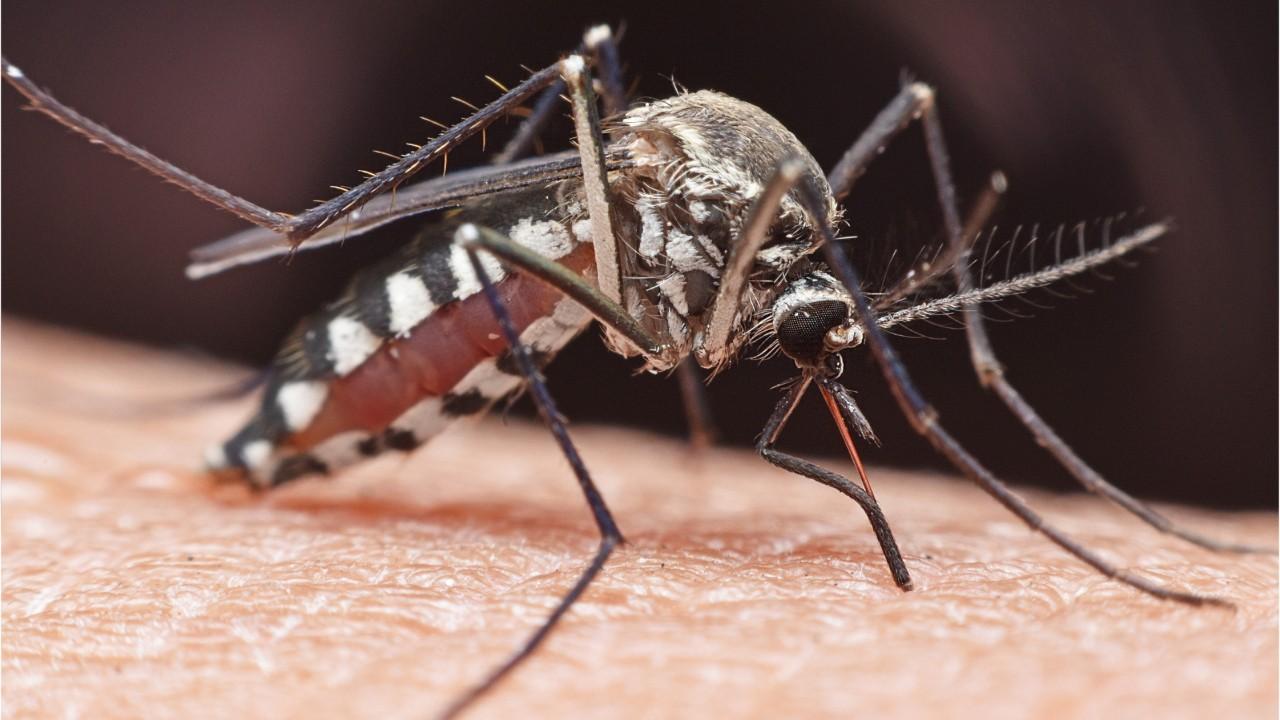[ad_1]
A young Rhode Island girl narrowly escaped death after contracting the rare and potentially deadly Eastern Equine Encephalitis (EEE) virus, her family says.
Late last month, 6-year-old Star Jackman, of Coventry, came home from her second day of school complaining of a headache. Her symptoms worsened over the next few days; Star developed a fever and began to vomit.
On Sept. 1, her parents, Reginald and Jessica Jackman, took the young girl to a local clinic. Roughly half an hour later, the little girl was in an ambulance on the way to Hasbro Children’s Hospital.
RHODE ISLAND SEES FIRST EEE DEATH SINCE 2007, OFFICIALS SAY
“It escalated that fast,” Reginald told the Providence Journal.
Doctors were unable to pin down exactly what was ailing Star, whose heart-rate plummeted at one point, reported Patch. The normally vibrant girl was so weak that she had trouble lifting her head.
Star’s EEE diagnosed was confirmed Sept. 10, more than a week after she was rushed to the hospital. She was cleared to go home around the same time.
The Rhode Island Department of Health (RIDOH) and the Rhode Island Department of Environmental Management later confirmed two additional cases of EEE in the state — one in a child younger than 10 and another in a person in their 50s. There have been three confirmed EEE cases in Rhode Island to date, which includes a resident who died after contracting the virus.
“We could have lost her,” Reginald told Patch. “We got lucky.”
Though the young girl is on the mend, her battle with EEE is not entirely over.
The virus affected her motor skills and memory. At one point, while still in the hospital, Star had trouble recognizing her parents and confused her family members’ names, her parents told the Journal. Her memory has improved since, however.
Star also has issues with muscle memory. Walking — once easy for the young girl who loves to dance and sing — is now difficult. Her pace is unsteady and she wobbles. She occasionally suffers from seizures and becomes fatigued easily.
The young girl is now working with both occupational and physical therapists, Reginald told Patch.
“It could last a few days, a month or the rest of her life. We just don’t know,” he said of her recovery timeline.
The family has received a lot of support from their local community and from Star’s elementary school, which provided a tutor so she doesn’t fall too far behind.
Reginald told Patch he’s not sure when or where his daughter, who has not yet returned to school, was bitten by the infected mosquito.
“We always use bug spray,” he said. “But it still happened.”
Neither Reginald nor Jessica Jackman responded to Fox News’ request for additional comment on Wednesday.
EEE “is one of a group of mosquito-transmitted viruses that can cause inflammation of the brain (encephalitis),” says the Centers for Disease Control and Prevention (CDC). The virus is more common in the Atlantic and Gulf Coast states, though the Great Lakes area has also seen cases.
Symptoms of EEE usually appear four to 10 days after a person is bitten by an infected mosquito. Severe cases of the virus “begin with the sudden onset of headache, high fever, chills, and vomiting,” says the CDC, which notes, “the illness may then progress into disorientation, seizures, and coma.”
DEADLY MOSQUITO-BORNE EEE VIRUS OUTBREAK IN MASSACHUSETTS MAY BE CAUSED BY THIS, EPIDEMIOLOGIST SAYS
One-third of those infected with EEE virus die; survivors typically have “mild to severe brain damage.” There’s no specific treatment for the infection.
Other than Rhode Island, cases of EEE have also been reported in states such as Michigan, Massachusetts and, most recently, Connecticut. Massachusetts has seen eight EEE cases this year. On average, five to 10 cases of EEE are reported each year, the CDC says.
[ad_2]
Source link

